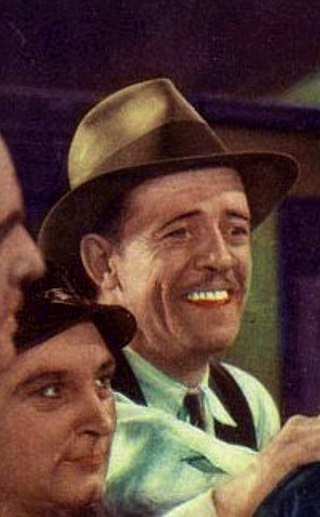
Tom London was an American actor who played frequently in B-Westerns. According to The Guinness Book of Movie Records, London is credited with appearing in the most films in the history of Hollywood, according to the 2001 book Film Facts, which says that the performer who played in the most films was "Tom London, who made his first of over 2,000 appearances in The Great Train Robbery, 1903. He used his birth name in films until 1924.
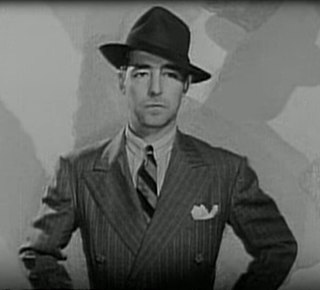
Kenne Duncan was a Canadian-born American B-movie character actor. Hyped professionally as "The Meanest Man in the Movies," the vast majority of his over 250 appearances on camera were Westerns, but he also did occasional forays into horror, crime drama, and science fiction. He also appeared in over a dozen serials.

Alfred Morton Bridge was an American character actor who played mostly small roles in over 270 films between 1931 and 1954. Bridge's persona was an unpleasant, gravel-voiced man with an untidy moustache. Sometimes credited as Alan Bridge, and frequently not credited onscreen at all, he appeared in many Westerns, especially in the Hopalong Cassidy series, where he played crooked sheriffs and henchmen.
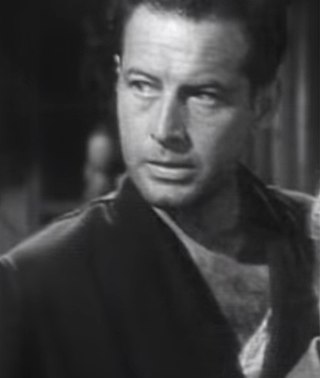
Willard "Bill" Kennedy was an American actor, voice artist, and host of the long-running Detroit-based television show, Bill Kennedy at the Movies. He began his career as a staff announcer in radio; Kennedy's voice narrates the opening of the television series Adventures of Superman.
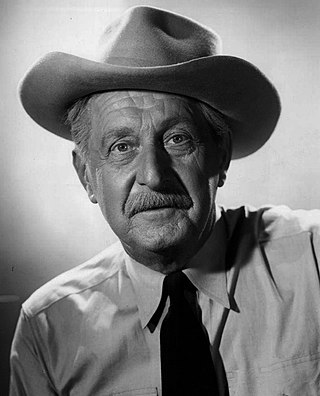
Stanley Martin Andrews was an American actor perhaps best known as the voice of Daddy Warbucks on the radio program Little Orphan Annie and later as "The Old Ranger", the first host of the syndicated western anthology television series, Death Valley Days.

Fred Graham was an American actor and stuntman who performed in films from the 1930s to the 1970s.

Allan "Rocky" Lane was an American studio leading man and the star of many cowboy B-movies in the 1940s and 1950s. He appeared in more than 125 films and TV shows in a career lasting from 1929 to 1966. He is best known for his portrayal of Red Ryder and for being the voice of the talking horse on the television series Mister Ed, beginning in 1961.
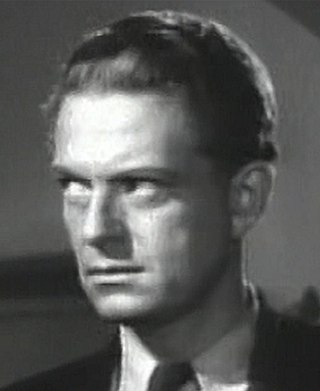
George Edwin Eldredge was an American actor who appeared in over 180 movies during a career that stretched from the 1930s to the early 1960s. He also had a prolific television career during the 1950s. He was the older brother of actor John Dornin Eldredge.
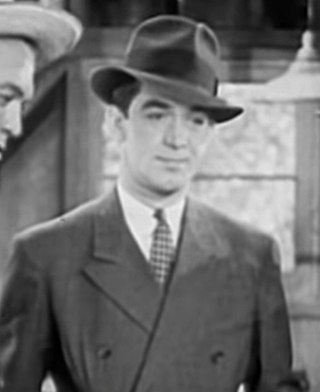
Anthony Warde was an American actor who appeared in over 150 movies from 1937 to 1964.
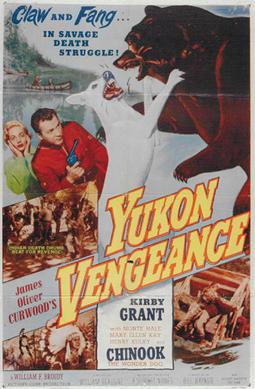
Yukon Vengeance is a 1954 American Northern film directed by William Beaudine and starring Kirby Grant, Monte Hale and Mary Ellen Kay. It was the tenth and final film featuring Grant as Mountie Corporal Rod Webb, assisted by his dog Chinook.
The Wolf Hunters is a 1949 American Northern film directed by Budd Boetticher and starring Kirby Grant, Jan Clayton and Edward Norris. It was based on the novel of the same title by James Oliver Curwood, which had previously been adapted in 1926 as The Wolf Hunters and in 1934 as The Trail Beyond starring John Wayne, Noah Beery, Sr. and Noah Beery, Jr. The film was the second in a series of ten films featuring Kirby Grant as a Canadian Mountie.

Yukon Gold is a 1952 American Northern film directed by Frank McDonald and starring Kirby Grant, Martha Hyer and Harry Lauter. The film was seventh in the series of ten films featuring Kirby Grant as a Canadian Mountie.

Call of the Klondike is a 1950 American Northern film directed by Frank McDonald and starring Kirby Grant, Anne Gwynne, and Lynne Roberts. The film was the fourth in the series of ten films featuring Kirby Grant as a Canadian Mountie.

Fangs of the Arctic is a 1953 American Northern film directed by Rex Bailey and starring Kirby Grant, Lorna Hanson and Warren Douglas. The film was the eighth in the series of ten films featuring Kirby Grant as a Canadian Mountie.
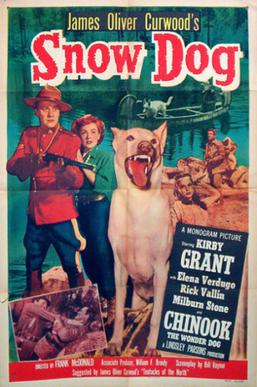
Snow Dog is a 1950 American Northern film directed by Frank McDonald and starring Kirby Grant, Elena Verdugo and Rick Vallin. It was the third of a series of ten films featuring Grant as a Canadian Mountie.

Yukon Manhunt is a 1951 American Northern film directed by Frank McDonald and starring Kirby Grant, Gail Davis and Margaret Field. The film was the sixth in the series of ten films featuring Kirby Grant as a Canadian Mountie.

Northwest Territory is a 1951 American Northern film directed by Frank McDonald and starring Kirby Grant, Gloria Saunders and Warren Douglas. The film is the fifth in the series of ten films featuring Kirby Grant as a Canadian Mountie.

Northern Patrol is a 1953 American Northern film directed by Rex Bailey and starring Kirby Grant, Marian Carr and William Phipps. The film was the ninth in a series of ten films featuring Kirby Grant as a Canadian Mountie.
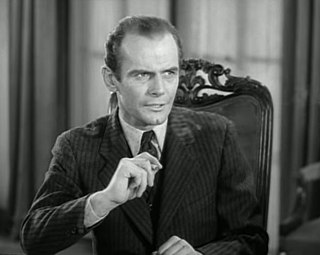
Peter George Lynn was an American actor and writer.
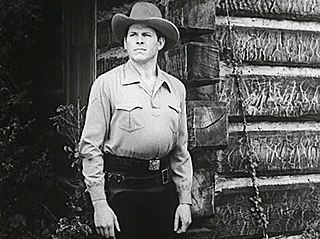
Fred Kohler Jr. was an American actor who performed in a number of Westerns such as The Pecos Kid and Toll of the Desert. He played nearly 130 film and television roles between 1929 and 1978.



















